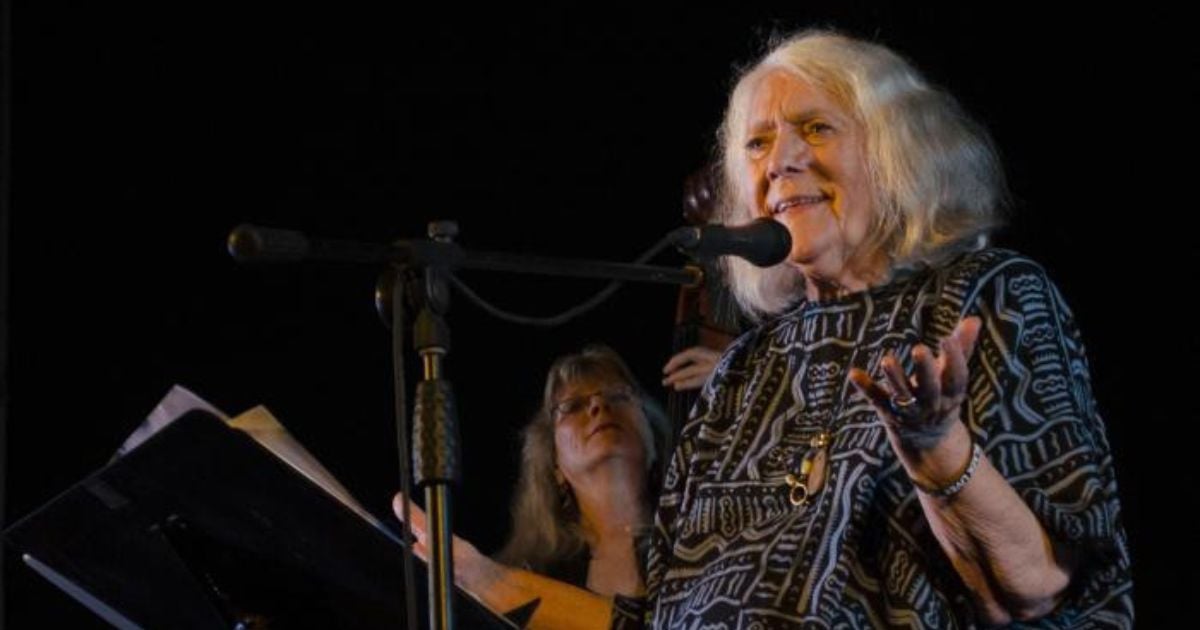At the age of 97, renowned jazz and blues singer Barbara Dane passed away last Sunday in her Oakland, California home after a prolonged struggle with heart failure. Dane was the mother and grandmother of Cuban musicians Pablo and Osamu Menéndez.
Pablo Menéndez, one of her four children, shared a heartfelt tribute on Facebook, simply stating, "Peace, love... and music. We must fight." Similarly, Cuban singer Osamu Menéndez expressed his sorrow on Facebook regarding his grandmother's departure, saying, "Yesterday, my beloved grandmother moved to another dimension. A great artist and a wonderful human being from this country. My heart aches. Light for her always."
Barbara Dane's legacy extends through her family, including her son with Rolf Cahn, folk singer Jesse Cahn, and her children with Byron Menéndez: Pablo Menéndez, leader of the Cuban rock band Mezcla and a resident of Havana, and Nina Menéndez, the artistic director of the Festival Flamenco Gitano and the Bay Area Flamenco Festival. Her artistic spirit also lives on in her grandson, Havana-based guitarist and vocalist Osamu Menéndez, and three great-grandchildren.
A Legacy Celebrated
The family intends to announce a memorial in the spring, likely coinciding with her birthday, as reported by the San Francisco Chronicle. Born Barbara Jean Spillman on May 12, 1927, in Detroit, Dane was celebrated for her remarkable ability to navigate a wide array of musical genres, from New Orleans traditional jazz and Chicago blues to international protest anthems, gospel, and folk ballads.
More Than a Voice
Beyond her powerful voice, Dane was an accomplished guitarist, civil rights activist, club owner, and record producer. Together with her third husband, folk music scholar Irwin Silber, she established Paredon Records, a politically driven label that released 50 albums now preserved by Smithsonian Folkways.
Driven by her commitment to racial equality and leftist causes, Dane often experienced fleeting recognition, as her focus was more on justice than on her "career"—a term she often used with a touch of irony. Yet, she never regretted choosing such a challenging path, using her voice "to assist in the complex process of trying to change the world," as she mentioned in a 2016 interview with the San Francisco Chronicle.
An Influential Career
From the early 1950s through the mid-1990s, her career flourished in the San Francisco Bay Area, Chicago, Los Angeles, and New York, where she helped shape influential music scenes. In the 1960s, she toured for a year with Willie Dixon and Memphis Slim as her backing band. In 1961, she opened Sugar Hill, a venue that highlighted major blues artists in North Beach, San Francisco.
Regular performers at this Broadway club included Big Mama Thornton, famous for her rendition of "Hound Dog," where Dane frequently performed alongside pianist and cornetist Kenny "Good News" Whitson and Wellman Braud, a pioneer of the walking bass style in jazz during his long tenure with Duke Ellington's orchestra.
In 1966, Barbara Dane made history as the first American artist to tour Cuba post-1959, marking a significant moment in her illustrious career.
